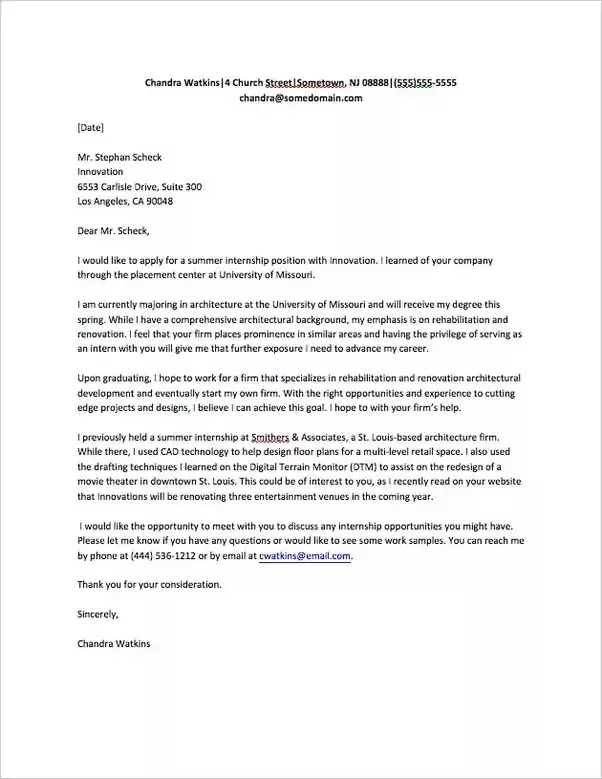In An Internship
Posted By admin On 12/04/22So with me having been an intern, and having a project that is really being implemented, I feel like it was a great success. (IMAGE) Andrew Oliveira is seen again. (Speaker: Andrew Oliveira) Coming from previous experiences in which as an intern you felt like a very small person, people were just bossing you around, and you get these trivial tasks. Merriam-Webster defines intern simply as an advanced student or graduate usually in a professional field (as medicine or teaching) gaining supervised practical experience (as in a hospital or classroom). Internships require you to both work individually and within a team. You learn to communicate in new ways to build professional working relationships with people of all ages. This is great because it allows you to be open to other peoples ideas and to get creative in a team in order to build better ideas and ultimately, to build a better company. Ensuring that internship programs are accessible for all youth, including youth with disabilities, is a major step towards building an inclusive workplace. Reference Appendix A at any point throughout this guide for a list of resources that can provide. Employers can post internship jobs, manage their intern job listings, and communicate with interns at internships.com.
Internships provide invaluable professional experience and allow you to test the theories and concepts you’ve been introduced to throughout your college career — not to mention they increase your chances of being offered a full-time job later on.
No matter what your major or preferred industry, employers look for a core set of skills and traits when considering applicants for both internships and entry-level jobs. Your prospective supervisor is interested in more than just your GPA, so whether you’re hoping to be a summer intern, planning on honing your time-management skills as an intern during the academic year, or applying for your first job out of college, it’s worth your while to draw attention to the transferable skills you’ve picked up during your courses, community service and extracurricular activities.
Below are the top 10 skills employers want in an intern:
1. Communication
I Participated In An Internship
Communication occurs in a variety of ways, but future employers are primarily interested in your ability to write and speak professionally. You have the opportunity to demonstrate your written skills in your resume and cover letter, and your verbal skills as you supply thoughtful answers to the common interview questions you’ll likely be asked. During your interview, you might mention your experience giving oral presentations (which perhaps was required in some of your classes). The ability to communicate effectively — to translate ideas and convey information — is key in any field, whether it’s with your supervisor, coworkers, or clients, and employers are well aware that it is a valuable skill.
2. Interpersonal

The ability to communicate effectively is often related to one’s ability to relate well to others, or “people skills.” Depending on the industry, you may be interacting with clients and vendors as well as your co-workers and managers. It’s important to be able to build and maintain relationships and be the kind of person team members want in the office with them every day. Interpersonal skills are also important because employers seek individuals who can identify the wants and needs of others and who can recognize and acknowledge the value of differing perspectives.
3. Collaboration
As an intern, you’ll likely collaborate with other interns and company employees. Your ability to communicate and relate well to others is certainly important for collaboration, as is the capacity to work with others toward a common goal. As part of a team, you have to understand your own strengths and weaknesses so you know how you can best contribute, as well as be aware of how you can bring out the best in others.
4. Time Management
If you’ve managed to successfully take a full course load every semester and meet assignment deadlines, to some extent, you’ve already demonstrated time management skills. But as an intern, you’re not going to have a syllabus to tell you when your deadlines are. It’s up to you to organize your time and produce results. Employers want to know that you can prioritize responsibilities and recognize when it’s appropriate to multitask or focus on one particular project at a time.

5. Adaptability
Today’s work culture — whether you’re hoping to intern for a startup or well-established organization — often requires even the most senior level executives to wear multiple hats. As an intern, one day you might find yourself supporting the sales team and the next day performing customer service. While you may have an interest in a particular aspect of an industry, a willingness to become familiar with the different parts of an organization is definitely viewed as an asset (and also increases your exposure within the company).
6. Critical Thinking
Critical thinking refers to your ability to analyze and evaluate a situation or issue and form a judgment. The tendency to think critically can be demonstrated by a willingness to ask questions in order to understand an issue from all possible angles, and to pose creative solutions to challenges. It’s something many of your professors have likely emphasized and is highly valued by employers.
7. Research and Analysis
If you’ve completed any research papers or projects for your coursework (and you likely have), you already have experience with research and analysis. Don’t be shy during your interview for an internship; make it a point to bring up the empirical research you performed for your psychology class and the conclusions you came to about how your fellow students make purchasing decisions in the campus bookstore. As a new member of the organization, you’ll be hit with a lot of new information, and your ability to process that information is a testament to your ability to fulfill whatever role you’re assigned.

8. Initiative
You’ve applied for an internship to gain knowledge of an industry and professional experience, but that doesn’t mean you don’t have anything to offer. During your interview, highlight instances where you’ve taken it upon yourself to contribute or positively affect change. Your potential employer will appreciate the chance to bring someone on board who doesn’t have to wait to receive direction for every task, and who’s willing to assist others with their work.
9. Receptiveness
Skills Acquired In An Internship
While taking initiative is important, so is the ability to receive feedback. For example, if you’re asked about a time you made a mistake, you can mention the feedback you received regarding the error and how you responded to it. Your interviewer will want to know that you’re willing and able to address any weaknesses.
10. Technical Proficiency
You certainly won’t be expected to be an expert in whatever platform the company you’re applying to uses, particularly if you’re hoping to intern for a company within a highly specialized industry. But you should know your way around a computer, and your ability to navigate basic productivity software will likely be presumed.
The above are commonly identified skills that employers seek in interns, as well as applicants for entry-level jobs. Be sure to research your particular industry and familiarize yourself with other skills or character traits that may be desirable in your field.

Next, get more career tips for internships and entry-level jobs such as Tips to Make Your Resume Stand Out and find answers to common interview questions such as How Do I Get an Internship?